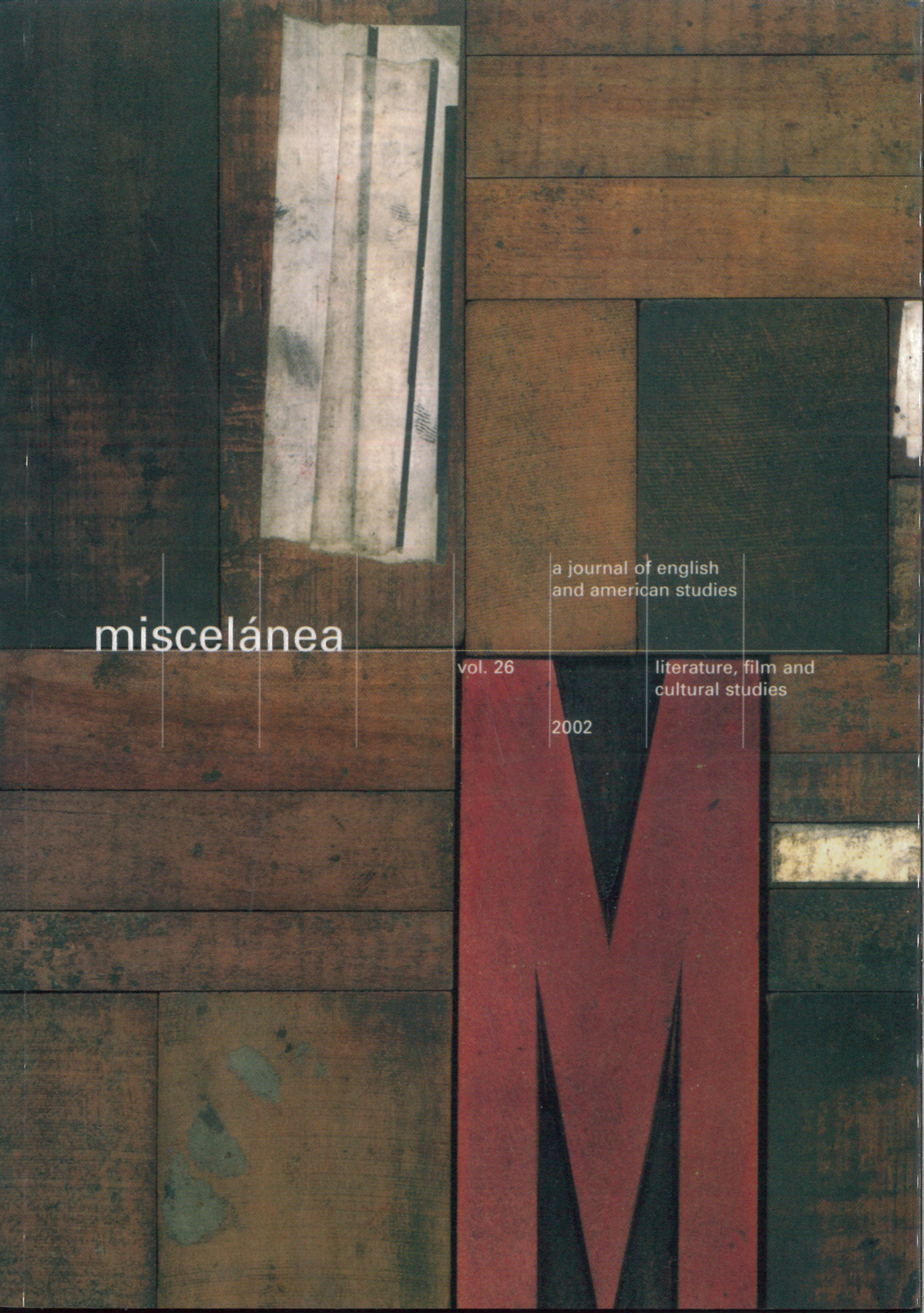Genre, Auteur and Identity in Contemporary Hollywood Cinema: Clint Eastwood’s White Hunter, Black Heart
DOI:
https://doi.org/10.26754/ojs_misc/mj.200210234Palabras clave:
Autoría, Género, Identidad, Masculinidad, ReflexividadResumen
El ensayo es un intento, en primer lugar, de indagar en la persistencia de formas de auteurismo en el cine de Hollywood contemporáneo y, en segundo lugar, de demostrar la pertinencia de un análisis conjunto de género y autor. Su punto de partida es la suposición de que los autores sobreviven, entre otras formas, en la obra de aquellos directores que también actúan en sus películas, y cuya carrera cinematográfica les ha investido de connotaciones culturales. Clint Eastwood es un buen ejemplo: su Cazador blanco, corazón negro (1990) ilustra cómo su configuración genérica, así como su representación de la identidad masculina, se ven influidas por los significados asociados al autor. El ensayo concluye que la complejidad de significados aportados por la estrella-auteur confiere a la película una ambivalencia que revela su condición de pieza de transición dentro de la agitación de los cambios de género y género que afectaron al cine de Hollywood de principios de la década de 1990.
Descargas
Citas
BINGHAM, Dennis. 1993. “Masculinity, Star Reception, and the Desire to Perform: Clint Eastwood in White Hunter, Black Heart”. Post Script. 12 (2) (winter): 40-53.
BRESKIN, David. 1992. “Clint Eastwood”. Rolling Stone. (September 7th): 102-110.
CAUGHIE, John. (1981) 1999. Theories of Authorship: A Reader. London and New York: Routledge.
COHAN, Steven and Ina Rae HARK. (eds.). 1993. Screening the Male: Exploring Masculinities in Hollywood Cinema. London and New York: Routledge.
COLLINS, Jim. 1993. “Genericity in the Nineties: Eclectic Irony and the New Sincerity”. In Collins, J., H. Radner and A. Preacher Collins. (eds.).: 242-263.
COLLINS, Jim, Hilary RADNER and Ava PREACHER COLLINS. (eds.).1993. Film Theory Goes to the Movies. New York and London: Routledge.
COMBS, Richard. 1992. “Shadowing the Hero”. Sight and Sound. 2 (6) (October): 12-16.
CORRIGAN, Timothy. 1991. “The Commerce of Auteurism: Coppola, Kluge, Ruiz”. In Corrigan, T. A Cinema Without Walls: Movies and Culture after Vietnam. New Brunswick: Rutgers U.P.: 101-134.
CROFTS, Stephen. 1998. “Authorship and Hollywood”. In Hill, John and Pamela Church Gibson. (eds.). The Oxford Guide to Film Studies. Oxford: Oxford U.P.: 310-326.
FISCHOFF, Stuart. 1993. “Clint Eastwood & The American Psyche —A Rare Interview”. Psychology Today. (January/February): 38-41, 75-79.
FUCHS, Cynthia. 1993. “The Buddy Politic”. In Cohan, S. and I. R. Hark. (eds.).: 194-210.
GALLAFENT, Edward. 1993. Clint Eastwood: Actor and Director. London: Studio Vista.
GERGEN, Kenneth J. 1991. The Saturated Self: Dilemmas of Identity in Contemporary Life. New York: Basic Books.
GIDDENS, Anthony. 1991. Modernity and Self-Identity: Self and Society in the Late Modern Age. Cambridge: Polity Press.
GLEDHILL, Christine. 1995. “Women Reading Men”. In Kirkham, Pat and Janet Thumin.(eds.). Me Jane: Masculinity, Movies and Women. London: Lawrence and Wishart: 73-93.
HOLMLUND, Chris. 1993. “Masculinity as Multiple Masquerade: The “Mature” Stallone and the Stallone Clone”. In Cohan, S. and I. R. Hark. (eds.).: 213-229.
HUGHES, Robert. (1993) 1999. The Culture of Complaint: The Fraying of America. London: The Harvill Press.
JEFFORDS, Susan. 1993a. “The Big Switch: Hollywood Masculinity in the Nineties”. In Collins, J., H. Radner and A. Preacher Collins. (eds.).: 196-208.
—. 1993b. “Can Masculinity Be Terminated?” In Cohan, S. and I. R. Hark. (eds.).: 245-262.
LASH, Scott and John URRY. 1994. Economies of Signs and Space. London: Sage.
MARINA, José Antonio. 2000. Crónicas de la ultramodernidad. Barcelona: Anagrama.
MELLEN, Joan. 1977. Big Bad Wolves: Masculinity in the American Film. London: Elm Tree Books.
NAREMORE, James. 1990. “Authorship and the Cultural Politics of Film Criticism”. Film Quarterly. 44 (1) (Fall): 14-23.
NEALE, Steve. 2000. Genre and Hollywood. London and New York: Routledge.
PFEIL, Fred. 1995. White Guys: Studies in Postmodern Domination and Difference. London and New York: Verso.
SMITH, Paul. 1993. Clint Eastwood: A Cultural Production. London: UCL Press.
TASKER, Yvonne. 1993. “Dumb Movies for Dumb People: Masculinity, the Body, and the Voice in Contemporary Action Cinema”. In Cohan, S. and I. R. Hark. (eds.).: 230-244.
TAUBIN, Amy. 1993. “An Upright Man”. Sight and Sound. 3 (9) (September): 9-10.
Descargas
Publicado
Cómo citar
Número
Sección
Licencia

Esta obra está bajo una licencia internacional Creative Commons Atribución-NoComercial 4.0.


